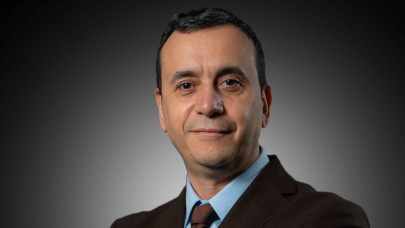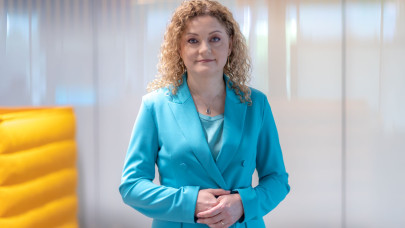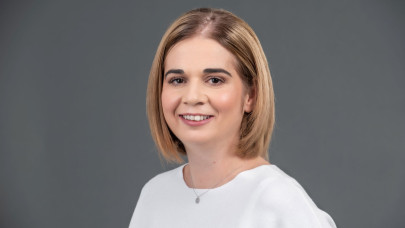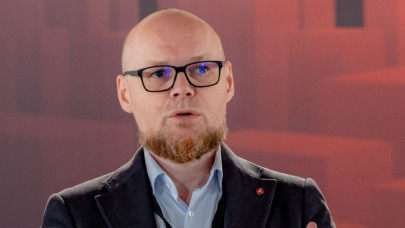What are some of Bright Spaces' operational highlights from 2023 and what are the startup's core objectives for 2024?
In 2023, Bright Spaces demonstrated adaptability and resilience in a challenging economic and social landscape, achieving quantifiable growth and significant milestones. Our efforts resulted in a two-fold year-on-year revenue growth, contributing to a 737% growth rate over the last three years.
We expanded our presence into new markets, including the Nordics, alongside our established footprint in CEE and the UK. We also diversified our product portfolio by introducing new verticals and launching an enhanced version of our Custom 3D Space Planning product.
For 2024, our primary objectives at Bright Spaces are to expand our global footprint and sustain our growth trajectory. Currently operating in six countries, we aim to end the year with a presence in at least eight nations, broadening our reach and market penetration.
We want to maintain the momentum we have established since Bright Spaces' inception and achieve again at least two-fold year-on-year growth.

Bogdan-Adrian Nicoară
CEO & Co-Founder
Bright Spaces
Bright Spaces has expanded its platform in the industrial segment in early 2024. Are there any specific challenges in this segment compared to others in the real estate industry?
The industrial sector is transitioning towards stability from the initial post-COVID boom. It continues to represent a robust asset class, with a growing emphasis on technology integration and digital solutions.
Stakeholders increasingly seek tools to visualise their current and future portfolios, explore interior space designs, and assess pre-lease opportunities.
Bright Spaces facilitates the pre-visualisation of exteriors and interiors, enables alternate scenarios for land plot development and build-to-suit options, optimises interior designs through 3D modelling, and streamlines stakeholder discussions for informed decision-making.
Are you looking to expand into new countries? Where is the platform used at present?
Bright Spaces operates in six countries: the UK, Finland, Poland, Hungary, The Netherlands, and Romania. While we have established a strong presence in Europe, we seek opportunities to expand our footprint across the continent and beyond. We are open to exploring other continents as part of our strategic growth initiatives.
How can the digitalisation of commercial real estate processes help property players?
Digitalising commercial real estate processes offers numerous benefits to property players, such as enhancing efficiency, attracting tenants, optimising costs and increasing revenue streams.
At Bright Spaces, by providing a centralised platform that serves as a single point of truth for all specifications, our digital solutions facilitate efficient leasing experiences and streamline commercial agreements.
Our technology helps property players meet modern tenant expectations with immersive showcasing experiences. By attracting more potential tenants and facilitating their research, property players can ensure an easy buyer journey and decrease sales cycles.
Our products contribute to cost reduction by optimising marketing, architecture, and sales expenses by up to 25%. We deliver substantial ROI by streamlining decision-making processes and providing comprehensive insights. Spaces can be leased up to 30% faster than traditional methods, resulting in increased revenue generation and improved operational efficiency.
Which property segment has the biggest share in your portfolio?
We initially focused on the office vertical and later expanded into other segments. Within the office segment, we offer a range of products spanning different stages of the leasing process, including the End-to-End leasing solution, the Custom 3D Space Planning product and the Flex Availability & Offering solution.
The office segment currently represents more than 60% of our portfolio. Still, we anticipate this percentage will decrease by year-end as we further diversify our offerings in the other verticals we target.
What are some of the challenges of running a proptech in 2024?
Running a proptech in 2024 comes with several challenges stemming from the industry's historical reluctance to embrace digital transformation. Despite being the largest asset class in the world, real estate remains one of the least digitised sectors. Industry players are grappling with the sudden need to adopt technology without clear metrics for measuring results, uncertainty about implementation strategies, and questions about scalability. Establishing trust with corporate entities presents another hurdle.
Many corporations tend to favour larger, established tech companies over startups, creating barriers to innovative solutions. We are well-positioned to engage with the most prominent players in the world due to our thorough understanding of the real estate sector, and we have proved that early-stage tech startups can open essential conversations and deliver outstanding results.
From a venture capital perspective, there's a shift in mindset from a “bull run” to a “bear run” and from a focus on rapid growth to sustainable growth and reaching the break-even point.
What are some of the trends you are seeing in the regional proptech market?
We are witnessing a gradual but steady shift towards tech adoption, with a focus on achieving tangible results in areas such as ESG initiatives, cost optimisation and digital showcasing.
While 2024 may not signal an explosive surge in adoption akin to a “bull run,” there is a noticeable trend towards testing tech solutions at scale. This experimentation phase is crucial for measuring ROI effectively and paving the way for widespread adoption across portfolios.
One notable trend is the increasing prevalence of virtual exploration in real estate decision-making. With 85% of individuals now conducting research and virtual exploration before committing to physical viewings, there's a clear demand for immersive digital experiences.
Bright Spaces recognises this trend and is strategically positioned to cater to the virtual research phase comprehensively.
Is Bright Spaces exploring new property niches that can be digitalised?
We are investigating opportunities within various aspects of retail, including long-term spaces, shorter-term spaces, and media spaces.













